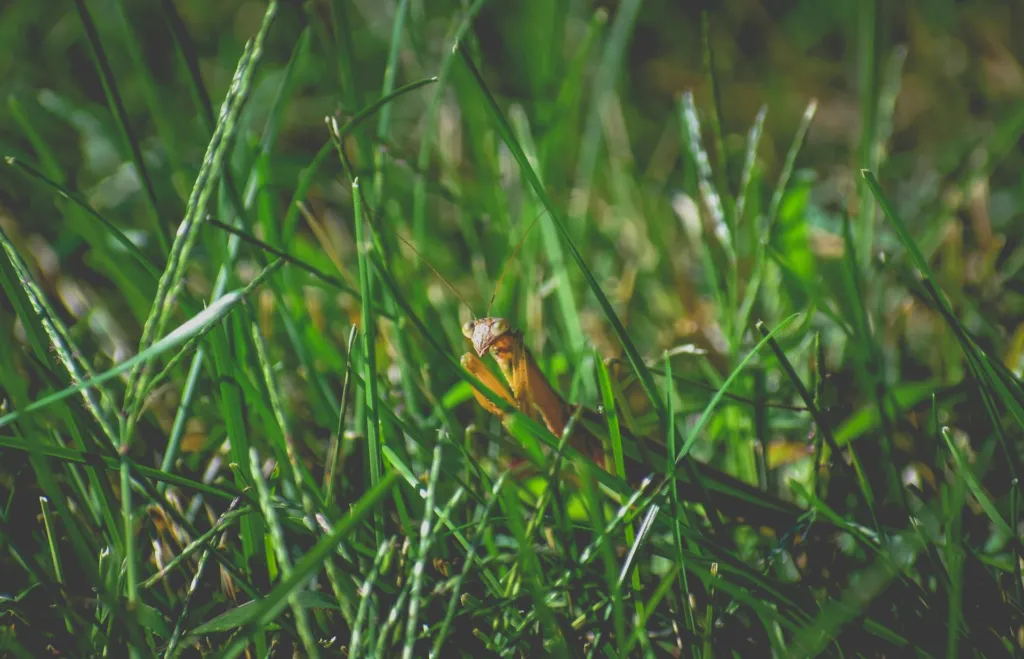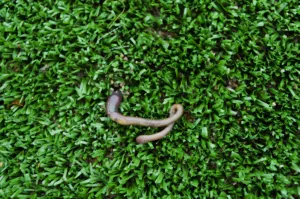
What Summer Weather Creates Florida Lawn Pests?
Learn About Ideal Conditions for Common Yard Bugs
Summer heat and rain can create the ideal environments for common lawn pests to thrive. Weather has a big impact on how these invaders breed, feed, and move (and annoy you).
Keep reading to find out the answers to weather-related questions about summer’s worst bugs. And don’t forget to get in touch with Luv-A-Lawn for expert lawn care and pest control! No matter the weather and the bugs that are “in season,” we’ll treat your yard based on its specific needs.

Does rain attract mosquitoes in Central Florida?
Florida has all the ingredients mosquitoes love. Warm temperatures, humidity, and rainfall. That’s why some southern states can host mosquitoes for up to 10 months a year.
But it’s the rain (more than anything else) that helps create an explosion in mosquito numbers. And actually, it’s when the rain stops that mosquitoes make their move. Because these biting bugs can lay their eggs in even the smallest amount of standing water. A bottle cap’s worth is enough for them.
Even worse? Warmer temps accelerate the mosquito life cycle, make them more active, and extend their breeding season. So as the thermometer climbs, disease-carrying mosquito populations boom.
Do fleas only come out in summer?
Mark your calendars from spring through fall. That’s flea season. But you’ll notice more fleas in summer because warmth (and humidity especially) are what fleas love.
They hatch and become adults more quickly with heat. Plus, summer offers more opportunities for them to find a host: cats, dogs, wild animals, and…humans. These tiny pests feed on the blood of their hosts and can spread serious diseases.
Fleas live in moist, shaded areas outside and can make their way into your carpet or furniture inside. To reduce the risk of fleas, trim your trees, mow your grass, and keep clutter in and around your house to a minimum.
For professional-grade flea treatments, let our expert technicians treat your yard. You’ll enjoy long-lasting protection and a stress-free season.

What weather do ticks like?
Typically, colder winters and drier springs lead to fewer ticks. On the flip side, mild winters and wet springs mean more ticks. The reasoning? Ticks breed and develop faster in warmer weather.
They’re active in the spring, summer, and fall. So why does summer seem like prime tick season? Because that’s when people and pets usually spend more time outside. So there are more opportunities for ticks!
Found in grassy or wooded areas, these parasites latch onto their hosts to draw blood. The most famous (and dangerous) disease from ticks is Lyme disease.
One easy way to keep ticks off you? Wear long-sleeve shirts and pants, then tuck your pants into your socks. It’s not stylish, but it’s fairly effective. Of course, the best tick elimination method is to call Luv-A-Lawn.
Why do you see more armyworms in summer?
It may be called the fall armyworm, but summer is often when the populations of these lawn-destroying caterpillars spike.
Warm, wet summers make it even worse. But predicting how bad armyworms will be each summer is difficult. That’s because winds influence where the moths land after traveling hundreds of miles from South America, Mexico, and the Caribbean.
It takes about 14 days for these caterpillars to reach maturity after hatching. During that time? They feed on grass blades.
After a group of armyworms eats your lawn, it looks brown, scorched, and dead. In only a matter of hours or days. Then they march to their next meal, especially gorging themselves on the last few days before pupation.
Do other common pests like heat waves and droughts?
Some do. Some don’t. It depends on the type of lawn pest.
Chinch bugs like hot, dry areas.
Their nymphs and eggs survive at a better rate in drier conditions, and sunny areas are at the biggest risk for chinch bug damage.
These tiny invaders are one of the most destructive yard bugs, especially for St. Augustine lawns. Chinch bugs suck the life out of your grass, creating ugly brown patches.
Grubs like warm, moist conditions, but extreme heat makes them less active.
Adult beetles lay eggs in the summer, preferring moist, well-irrigated lawns. About two weeks later, the eggs hatch into grubs and start feeding on grass roots. That’s when the most serious damage occurs to your lawn.
Sod webworms like it humid and warm.
Sod webworms are most active during the late summer and early fall when temperatures are warmer. Humid conditions also help their development, so they flourish in states with higher moisture levels, like Florida.
These lawn caterpillars spin webs over the leaves of trees and shrubs and feed on the foliage within the webs. It looks unattractive and can lead to defoliation and weakened plants.
Bugs Bugging You? Call Us!
Is it hot? Rainy? Humid? Different lawn pests like different summer weather. So contact Luv-A-Lawn to achieve a beautiful lawn and get peace of mind. We proudly serve several Florida cities and the surrounding communities, ensuring high-quality lawn care and pest control services across the region:
